Will robots replace China’s civil servants?
As AI capabilities advance, concerns about how AI will change the job landscape have intensified. In China, workers in the civil service and media industries have expressed fears that their jobs will be replaced by AI. How valid are these fears and concerns? Lianhe Zaobao’s China Desk finds out.
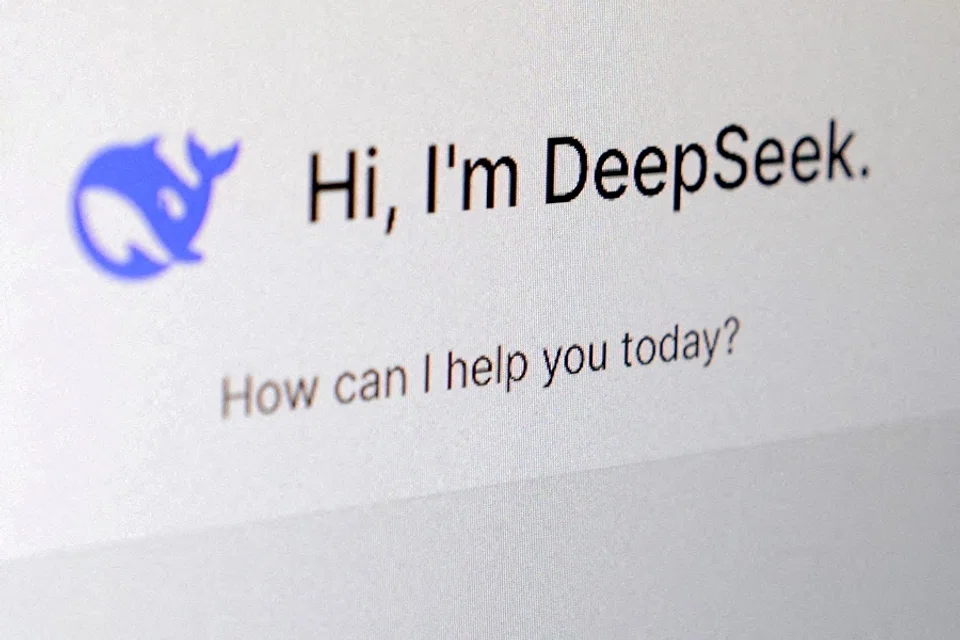
Startup company DeepSeek, one of Hangzhou’s “Six Little Dragons”, released its latest open-source artificial intelligence (AI) model, DeepSeek-R1, on 20 January. At a mere one-thirtieth of the training cost, its performance is on par with leading US firm OpenAI’s most advanced model, sending shockwaves through Silicon Valley and Wall Street.
Over the past weeks, DeepSeek has permeated various aspects of Chinese society. It has been integrated with the three major Chinese telco companies, Baidu Search, Tencent WeChat, and automotive giants such as BYD and Geely. Since 14 February, regions including Guangdong, Jiangsu, Inner Mongolia, Jiangxi and Shandong have also announced the integration of DeepSeek models into local government service systems. The first batch of 70 “AI digital employees” has begun working in the central district of Futian, Shenzhen.
The “matrimony” between DeepSeek and various industries has sparked unease among Chinese workers, who fear that a wave of AI infiltration in the workplace could lead to mass unemployment. Discussions about the potential loss of the “iron rice bowl” of civil service jobs have also increased.
70 new colleagues in the office that do not slack off
“The Shenzhen civil service circle is all riled up — 70 “new colleagues” who don’t draw a salary, don’t pay social security and don’t slack off have joined their ranks!”
Sources indicated that the AI employees in Futian have performed impressively, with great improvement in the efficiency and accuracy of document generation — some tasks were completed with the press of a button.
According to reports from media outlets such as Guangzhou Daily and the Yangtze Evening Post published on 18 February, the southern Chinese cities of Guangzhou and Shenzhen announced on 16 February that their government systems have integrated the DeepSeek model.
The first batch of 70 “AI digital employees” developed based on DeepSeek has started work in Shenzhen’s Futian district. These AI employees cover 11 areas of government work, including document processing, providing public services, emergency management and investment promotion, and were sufficiently put to use in 240 business scenarios.
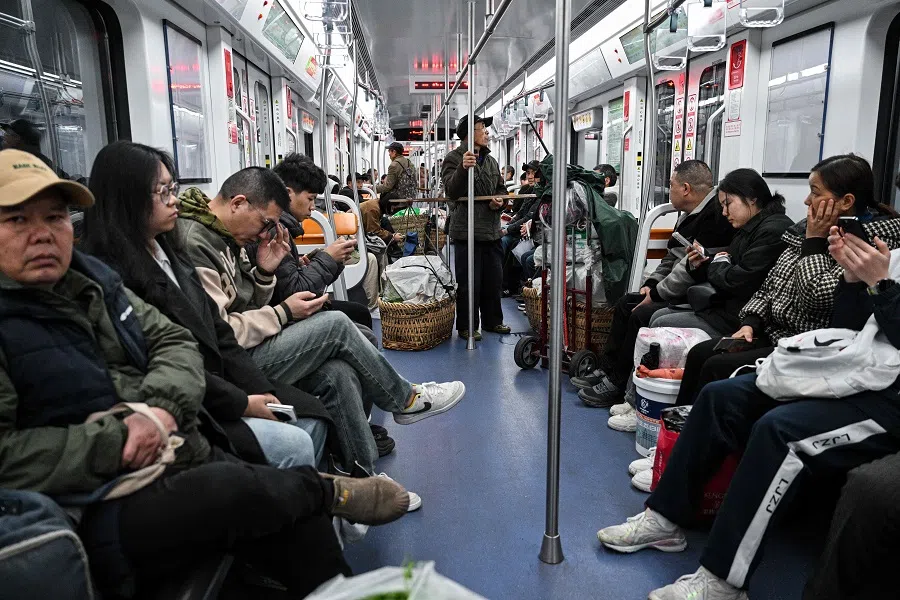
The knowledge base of these AI employees is derived from the 120 million various government data entries accumulated in Futian over the past decade. This data has been used to construct a specialised knowledge graph covering policies and regulations, workflows, past cases and so forth. Combined with DeepSeek’s general capabilities and tailored to the actual business procedures from various departments and units, a bespoke intelligent entity was formed.
Sources indicated that the AI employees in Futian have performed impressively, with great improvement in the efficiency and accuracy of document generation — some tasks were completed with the press of a button. The time needed to generate personalised service for governmental business scenarios was reduced from five days to minutes; document format correction accuracy exceeded 95%, review time was cut by 90%, and the error rate was controlled within 5%.
Other civil servants complained that “AI civil servants do not need salaries, insurance or welfare; they only require electric costs. Most importantly, they are tireless and completely loyal to their leaders. This is practically a complete smackdown,”...
AI a threat to civil servants’ jobs?
The AI employees in Futian quickly caught the public’s attention, with some netizens jokingly commenting that “those that slack at their jobs can step down now”. Such sentiments have caused many human civil servants to feel increasingly threatened.
Several civil servants remarked, “These AI workers from DeepSeek are banging on the iron rice bowl in Futian!”. Other civil servants complained that “AI civil servants do not need salaries, insurance or welfare; they only require electric costs. Most importantly, they are tireless and completely loyal to their leaders. This is practically a complete smackdown,” and that “if such involution continues, I might fare worse than an AI “colleague” in the year-end evaluation!”.
The impact of AI civil servants on the Chinese workplace is not an isolated phenomenon. Before Guangzhou and Shenzhen, several other Chinese regions had announced the integration of DeepSeek into their government systems.
The WeChat official account “Ganzhou Reform” reported on 14 February that Ganzhou City in Jiangxi Province had finished deploying the DeepSeek model in its civil service domains, becoming the first city in the province to implement the model successfully.
Local media outlet “Qingcheng Media” from Hohhot, the capital of Inner Mongolia, reported on 15 February that the city’s big data management authorities had in recent days completed the local deployment of DeepSeek-R1 on its civil service external network, making it the first region in Inner Mongolia to apply DeepSeek to its City Brain.
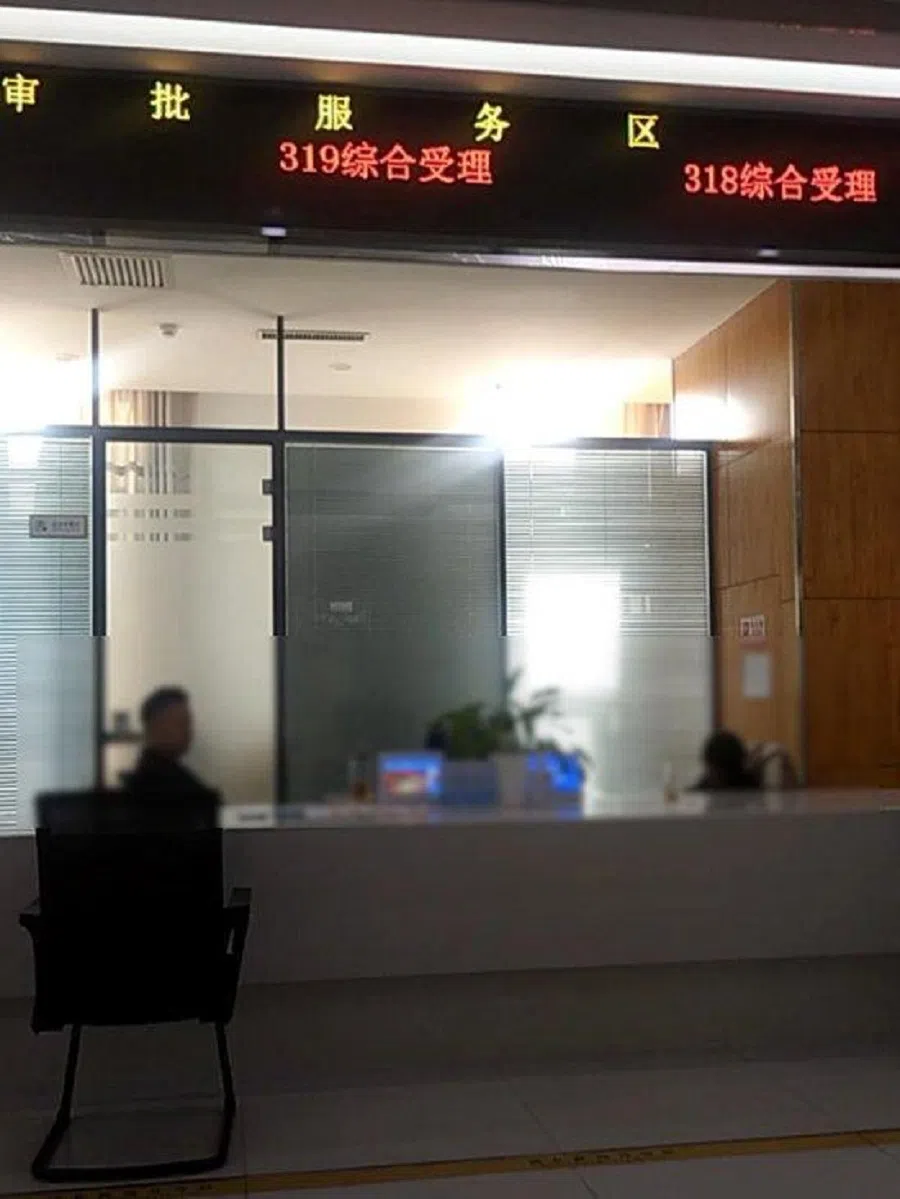
Jiangsu Television reported on 16 February that cities such as Nanjing, Suzhou, Wuxi, Changzhou, Yancheng and Lianyungang have one after another announced the launch of the DeepSeek model in their city computing networks.
DeepSeek has also reportedly cooperated with more than 15 state-owned enterprises that span the telecommunications, energy, finance, automotive and technology sectors, among other fields. These efforts accelerate the widespread application of AI across various scenarios and products.
Unlike human workers, AI employees don’t need naps
Amid the praise for AI’s efficiency, reports of some civil servants being caught napping at work in China have put human employees in a difficult position when voicing their opposition to AI.
According to reports from outlets like Shanghai Observer and Jimu News, a citizen surnamed Cui visited the Qilihe District Government Service Centre in Lanzhou on the afternoon of 6 February, and found two staff members sleeping on the job. Finding it inappropriate, he recorded the scene and uploaded the footage online, sparking mixed reactions.
While many expressed sympathy for the two napping civil servants, noting that their service points would sometimes not receive any customers for extended periods and thus making a quick nap seem harmless as “we are humans, not robots”, the delay experienced by Cui in receiving quality service has strengthened the argument for replacing humans with AI for mundane and tedious tasks.
Fears of AI job replacement also extend to the media industry
In addition to the civil service, the AI wave has also swept through the Chinese media industry. A presentation by Hangzhou News’ during this year’s Spring Festival saw AI news anchors delivering content flawlessly, prompting discussions about the potential elimination of human news anchors.
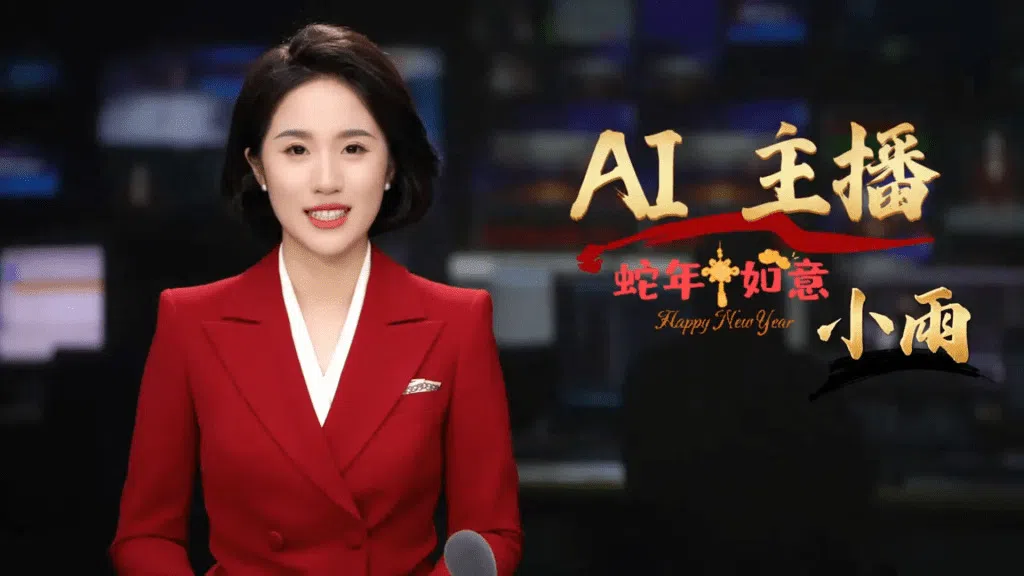
AI anchors offer significant advantages, including 24/7 broadcasting capabilities and the ability to switch between different languages. They make zero errors and are available 24/7, greatly increasing reporting efficiency and reducing labour costs.
In response to the emergence of AI anchors, many Chinese netizens commented that “broadcasting majors are doomed”, and questioned whether human hosts will still have a job after the Spring Festival, now that there are AI anchors.
AI anchors can take over late-night news and early-morning breaking news reports from human anchors, saving labour costs. — Professor Liu Haiming, School of Journalism and Communication, Chongqing University
On 10 February, Hongxing News (《红星新闻》) quoted a third-year female broadcasting major surnamed Chen from a university in Beijing as saying that seeing several television programmes recently introduce AI anchors has added to her stress. But she firmly believes that AI cannot replace the depth of human thought and professional skills, such as responding to unexpected situations and exercising ethical journalistic judgment.
A broadcasting major surnamed Zhang from a university in Sichuan is also convinced that the broadcasting industry will not be replaced by AI because face-to-face human interactions, interviews and writing still need to be completed by humans. The emergence of AI anchors simply serves to remind undergraduates of the need to learn AI technologies to enhance their work efficiency.
Liu Haiming, a professor and PhD supervisor at Chongqing University’s School of Journalism and Communication, thinks that the greater adoption of AI by the media is a good thing. For example, AI anchors can take over late-night news and early-morning breaking news reports from human anchors, saving labour costs.
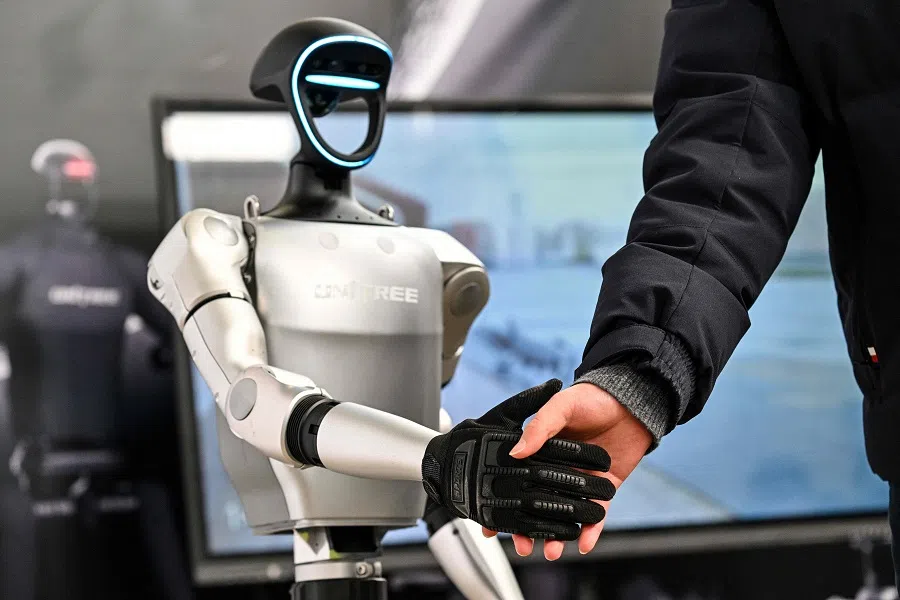
Liu also pointed out that while AI will inevitably displace some jobs and that feeling some employment pressure is normal, it is unlikely that it will take over all journalism jobs. Only those who completely reject new technologies will be affected. The idea that AI will completely replace human anchors or reporters is an unfounded worry.
Addressing concerns about job replacement
Faced with mounting public anxiety about being replaced by AI, Chinese media outlets are ramping up efforts to ease employees’ concerns.
Qilu Evening News (《齐鲁晚报》) on 18 February quoted Gao Zeng, deputy head of Futian district’s digital services bureau, as refuting the notion of so-called “AI civil servants”. He stressed that “AI employees” are merely AI tools meant to aid public administration and the delivery of services, as well as enhance work efficiency. They cannot make decisions alone and should not be considered “AI civil servants”.
Gao said that the 70 AI employees are actually 70 intelligent agent AI accounts. “Each ‘AI employee’ has a designated human supervisor and operates under the guidance of the supervisor, who is held accountable for all actions,” he added.
That same day, Jiupai News (《九派新闻》) also quoted a staff at Futian’s digital services bureau as stating that the AI employees are currently assisting the business departments in their work, asserting that “the replacement [of some human employees] is still quite a long way off, so there’s no need to worry now”.
AI is more likely to replace repetitive and monotonous tasks, as opposed to meaningful work that requires emotional intelligence or in-depth, interdisciplinary learning. — Associate Professor Zhan Jing, School of Labour Economics, Capital University of Economics and Business
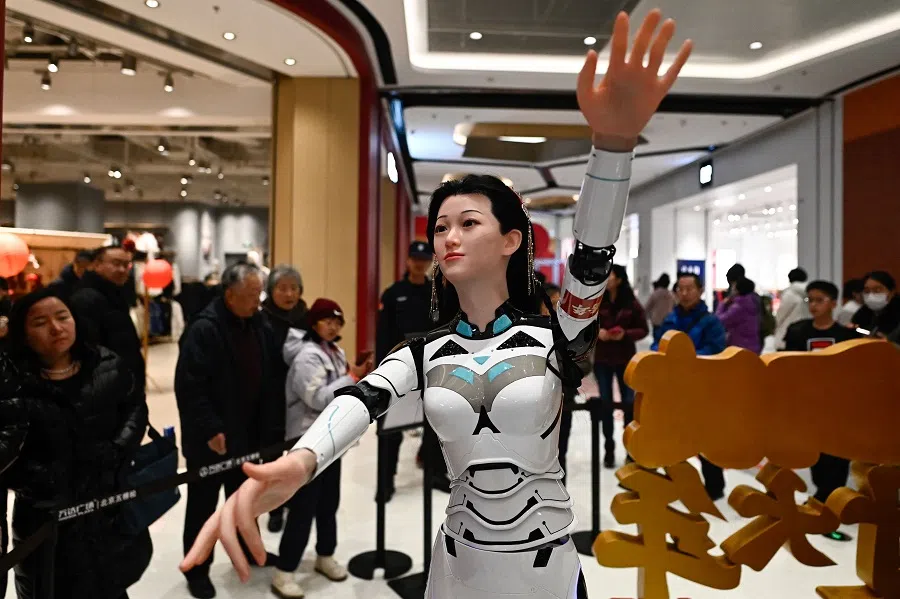
A staff at Futian’s human resources bureau explained that because AI employees are still a new development, they will not affect upcoming recruitment quotas for the Futian district.
AI should be seen as a tool and opportunity, not a threat
Yangtse Evening Post (《扬子晚报》) quoted Wang Peng, an associate research fellow at the Beijing Academy of Social Sciences, as saying that the emergence of more AI employees in the future is an inevitable trend, but there is no need to overly worry about “AI civil servants” taking away their “iron rice bowls”. Although the application of AI could affect some traditional jobs, it will also create new professions and job opportunities.
Wang pointed out that the adoption of AI will also encourage people to transition to higher-value jobs, such as policy-making and decision-making support. Individuals should thus actively embrace technological change and continuously improve their skills and qualifications to adapt to the future job market.
Zhan Jing, an associate professor at the Capital University of Economics and Business’s School of Labour Economics, analysed that AI is more likely to replace repetitive and monotonous tasks, as opposed to meaningful work that requires emotional intelligence or in-depth, interdisciplinary learning. “AI is not as scary as we imagine it to be. We should see it as a tool,” she said.
The human element is still crucial to many jobs
Chinese media even included DeepSeek’s assessment of employee concerns about AI snatching jobs, emphasising that AI is currently still unable to fully replace human creativity, emotional intelligence, and complex decision-making abilities. Many tasks involved in civil service work, such as policy-making, public communication and crisis management, still require human judgement and empathy.
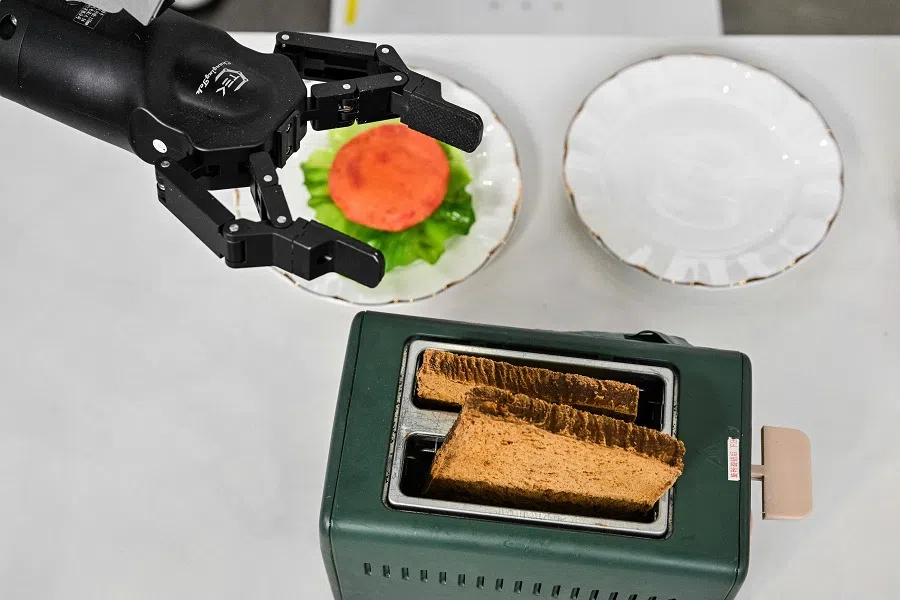
DeepSeek stated that AI could partially replace repetitive and standardised tasks such as data entry and document review, reducing the number of low-skilled civil servant positions on the one hand while at the same time pushing the nature of civil service work towards roles requiring higher skills and greater creativity. It concluded that human-machine collaboration is expected to become mainstream, driving the evolution of the civil service system.
With China facing declining marriage and birth rates, an ageing population and a shrinking labour market, both the government and businesses should prepare to supplement human employees with AI robots to boost efficiency and service quality. However, given the sluggish job market and surplus human resources, the government must carefully implement AI to prevent job loss and social instability, ensuring that technological progress benefits the majority.
This article was first published in Lianhe Zaobao as “中国打工人担忧AI渗透职场抢饭碗”.





